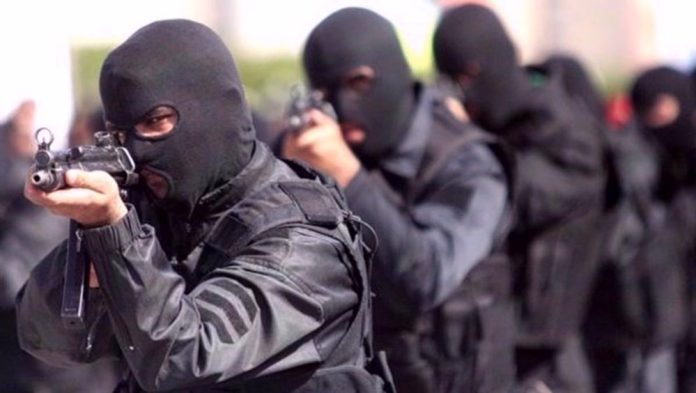On 31 July, the United States, United Kingdom and several European countries jointly condemned Iran’s growing intelligence activities abroad. The statement, signed by the US, UK, Albania, Austria, Belgium, Canada, Czechia, Denmark, Finland, France, Germany, the Netherlands, Spain and Sweden, criticised Iran for attempts to “kill, kidnap, and harass individuals in Europe and North America.” They said these actions violated national sovereignty.
The statement highlighted Iran’s use of organised crime groups in Western countries to carry out violent acts. These operations targeted journalists, dissidents, Jewish communities, and current and former officials.
Iran reportedly uses criminal networks to hide its involvement in these operations. These include the Foxtrot gang in Sweden, the Hells Angels in Germany and Canada, and drug cartels in the US. This approach helps Tehran extend its influence across borders.
Use of religious institutions for political activity
On 19 July, The Times reported that the Ark Islamic Centre in Govanhill, Glasgow, served as a polling station during Iran’s recent presidential election. The centre also hosts the Muslim Council of Scotland, an advisory group to the Scottish Government. It officially hosted polling twice last summer. UK politicians have since called for an investigation into Iran’s role in Scotland.
Earlier, The Sunday Times revealed that two other Glasgow Islamic centres with links to Tehran received significant public funds. The Ahl al Bait Society Scotland, which got over £400,000 in grants, held a memorial for Iranian President Ebrahim Raisi. The Al Mahdi Islamic Centre, awarded more than £370,000, displayed the Iranian flag alongside images of Ayatollah Khomeini.
In 2024, German authorities banned the Islamic Centre Hamburg (IZH). They concluded the centre acted as an extension of the Iranian regime and supported Hezbollah-linked activities. The German Interior Ministry accused the IZH of promoting extremist ideology and antisemitism. Police raided 53 sites across several states, including Berlin, Bavaria, Hesse, and Bremen, confirming IZH’s connections to Hezbollah.
European response to Tehran’s activities
The European Union has not yet designated Iran’s Islamic Revolutionary Guard Corps (IRGC) or Ministry of Intelligence (MOI) as terrorist organisations. However, on 15 July, it sanctioned the Zindashti network. This group leads the MOI’s overseas operations. Washington and London labelled it a terror ring in 2024. The network targeted Iranian dissidents in Turkey, Sweden, the UK, Canada, and the US.
On 10 July, the UK Parliament’s Intelligence and Security Committee identified Iran as a major national security threat. The committee cited over a dozen plots to abduct or kill UK citizens or residents between January 2022 and August 2023.
In March and May 2025, Finnish and Swedish intelligence agencies reported that Tehran increased efforts to target regime critics and Israeli interests in Scandinavia.
New surveillance law on Iranian citizens abroad
On 30 July, Iran’s parliament passed the “Support for Iranians Abroad” bill. Despite its name, the law requires creating a government database of Iranians living overseas. Article 5 tasks the Ministry of Foreign Affairs with compiling this register. It must report yearly to the parliamentary National Security Commission.
The law claims to improve consular services and strengthen diaspora ties. However, it includes no rules on consent, privacy, or transparency. There is no indication that registration is voluntary. Experts warn it may serve as a surveillance tool rather than a support measure.
Iran’s intelligence structure and external operations
Iran’s external operations involve multiple agencies working towards shared goals. The Islamic Revolutionary Guard Corps (IRGC) and Ministry of Intelligence (MOI) lead these efforts.
The IRGC includes branches like the Qods Force (IRGC-QF), Unit 840, the IRGC Intelligence Organisation, and the Counterintelligence Protection Organisation. The MOI has departments similar to other intelligence services. One office reportedly focuses on avenging the 2020 assassination of IRGC-QF Commander Qassem Soleimani.
